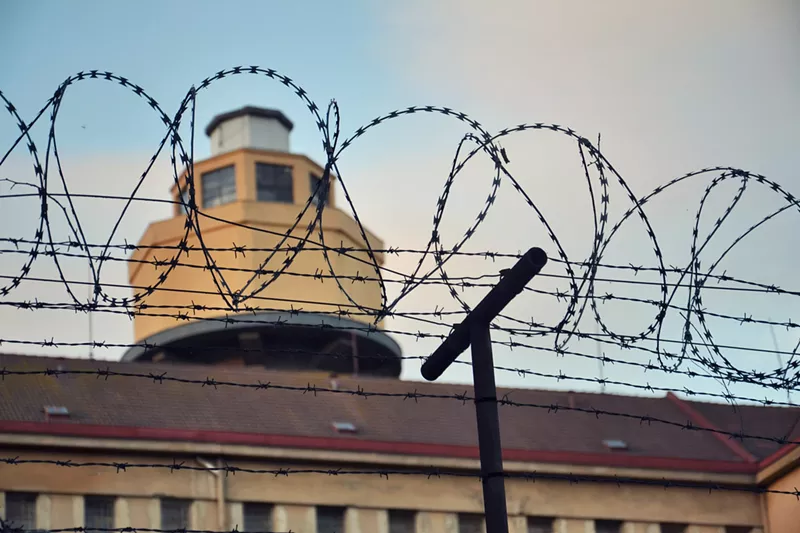As outlined in Gov. Gretchen Whitmer's latest executive order, Michigan's prison system will now have detailed “risk-reduction protocols” to protect vulnerable Michigan Department of Corrections' faculty and incarcerated populations in an effort to curb the spread of the coronavirus.
The number of positive COVID-19 cases throughout MDOC facilities doubled over the weekend. As of Sunday, 58 prisoners, one parolee, and 12 employees have tested positive for coronavirus across eight correctional facilities, MLive reports. More than 41,000 people are incarcerated in Michigan throughout 31 correctional facilities.
“The health and safety of all Michiganders remains our top priority during this public health crisis and that includes those incarcerated in our jails and juvenile detention centers,” Whitmer said in the release. “It is challenging for inmates and employees to practice social distancing to slow the spread of COVID-19, and this Executive Order will put commonsense protocols into place to protect our jail and juvenile detention center populations.”
The order, which remains in effect until April 26, asks that all MDOC facilities adopt new precautionary measures, including screening everyone who enters or leaves the facility, restricting all non-attorney-related visits, limiting any appointments deemed non-urgent or those that are not related to emergency medical care, regular surface cleaning, provide access to personal hygiene supplies, make efforts to minimize crowding, and implement social distancing during programs or classes.
The order also states that facilities should develop and implement a protocol for those imprisoned who develop COVID-19 symptoms, as well as provide access to protective equipment, like masks and gloves, to all MDOC staff.
Prison-to-prison transfers are also temporarily suspended, starting Sunday, April 5 at which point inspection can take place once every 7 days to determine if risk reduction protocols have been met to accommodate transfer requests.
Tonight, I signed an Executive Order that protects vulnerable populations in Michigan’s county jails, local lockups and juvenile detention centers during the ongoing #COVIDー19 pandemic ⬇️
— Governor Gretchen Whitmer (@GovWhitmer) March 30, 2020
It is also asked that prisons consider early release for people who are at risk for COVID-19 but do not pose a public safety risk, such as older people, those with chronic medical conditions, those who are pregnant, and inmates approaching their release date. Also included in this consideration are individuals who are jailed due to traffic violations or failure to appear or pay. Those described as having behavioral health problems are also early release candidates, just so as they can safely receive treatment.
Whitmer's order also details protocols to be adopted by juvenile detention and residential facilities. Any juveniles who exhibit COVID-19 symptoms are to be removed from the general population and should they be removed, receive medical care and support. It's also the facility's responsibility to facilitate counsel, education services, family visits, and other means of support via phone or video conferencing for no cost.
Before MDOC reported its first COVID-19 case on March 22, Nora Krinitsky, director for the University of Michigan Carceral State Project and Prison Creative Arts Project expressed concern over unrealistic expectations for social distancing in prisons.
“Due to the built environment of prisons and issues of overcrowding, it is extremely difficult to practice recommended social distancing or isolate yourself if you are sick,” Krinitsky told the University of Michigan. “Many Michigan prisons are severely overcrowded. Women’s Huron Valley Correctional Facility in Ypsilanti — the only women’s prison in the state — houses over 2,200 women but only has capacity for 1,100.”
Veteran corrections officer Byron Osborn told Bridge that “each prison is its own small city,” adding that most prisons have open bays that confine up to eight people to a cell. Food halls are also a concern.
“Some prisons have more in big open rooms, bunks lined up like in the military," he said. "They all go to the food hall. It’s virtually impossible to keep them at any distance.”
In a letter posted to Facebook written by Rich Sherwood, an inmate serving a four-year drug crime sentence at Jackson's Parnall Correctional Facility, Sherwood describes feeling “trapped in an environment where the virus is spreading rapidly.”
The letter alleges that the prison's administration has admitted to not knowing how to navigate the COVID-19 crisis, and claims they “carelessly” move inmates from infected areas to uninfected areas. But Sherwood adds that he has not witnessed discrimination on basis of race, age, sexual preference or religion in terms of who gets coronavirus treatment, saying he believes “fear, concern, and love” have overpowered.
“All 160 of us in a 60 x 100-foot pole barn waiting for hope and hoping we don't lose everything before our chance at life,” Sherwood writes. “And that is just my unit, there are several of those units at this facility. We don't have the option of 'social distancing' and are rightfully worried and scared.”
You can read Gov. Whitmer's executive order here.
Stay on top of Detroit news and views. Sign up for our weekly issue newsletter delivered each Wednesday.







